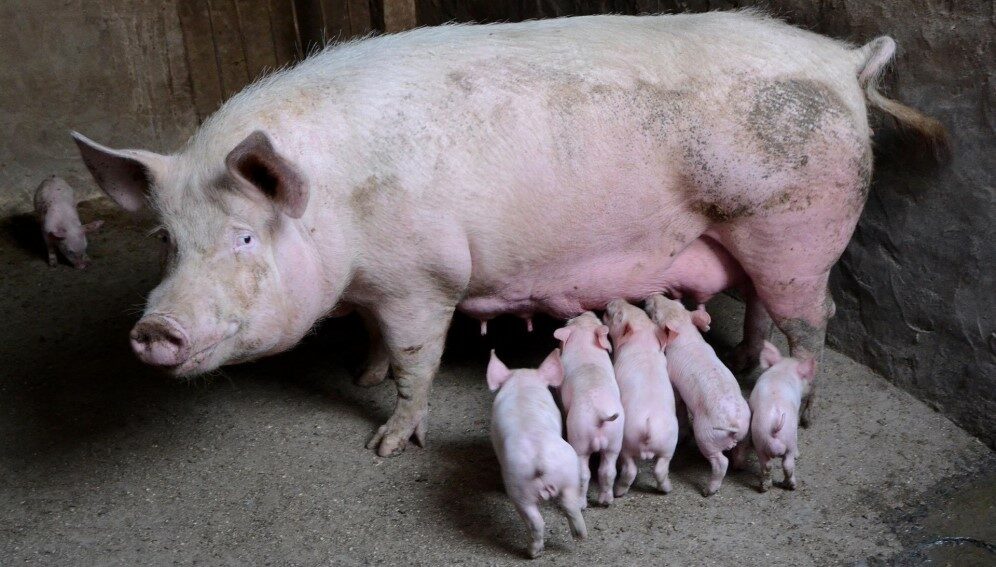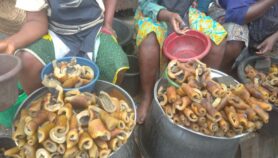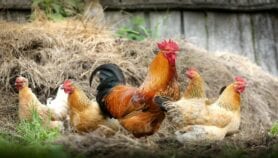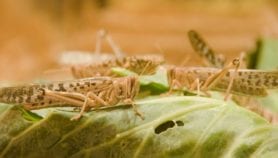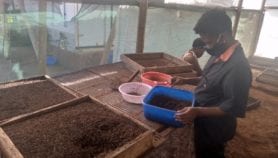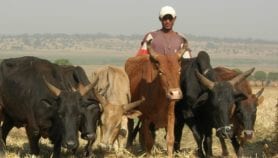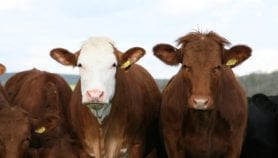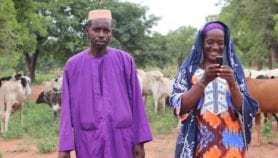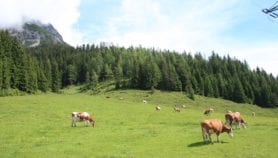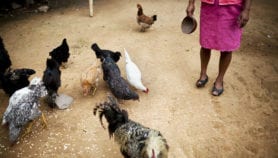By: Maina Waruru
Send to a friend
The details you provide on this page will not be used to send unsolicited email, and will not be sold to a 3rd party. See privacy policy.
[NAIROBI] Using nutrient-rich coconut water to artificially inseminate female pigs could improve breeding and meat quality, a project carried out in Uganda has found.
Uganda has the highest demand for pork in East Africa at 3.4 kilograms per capita per year and a population of 3.6 million pigs providing livelihoods to over 1.1 million households, according to the International Livestock Research Institute.
Researchers conceived the community action project after realising that most smallholder pig farmers keep poor breeds resulting in low growth rates, few piglets produced, and poor quality pork with little lean meat and high-fat content.
“High concentration of sodium and potassium in the green coconuts are factors which help in sperm motility and longevity.”
Elly Ndyomugyenyi, Gulu University in Uganda
“Artificial insemination facilitates the collection of boar semen from superior boars to improve the genotypes, and subsequently higher productivity is achieved,” said Elly Ndyomugyenyi, the project’s lead researcher and senior lecturer at the department of animal production at Uganda’s Gulu University.
Farmers take fresh coconut water from five-month-old fruit known to be rich in nutrients such as sodium and potassium, he added. The water is used to aid insertion and delivery of the semen into the female pig’s reproductive canal.
“High concentration of sodium and potassium in the green coconuts are factors which help in sperm motility and longevity,” Ndyomugyenyi explained. “Coconut fruits are readily available in the local markets. They are sold like other local fruits.”
Extraction is done by opening the fruit with a sanitised blade, after which the water is poured into a clean beaker before it is transferred using a cotton cloth.
The project, which is an initiative of Uganda-based Regional Universities Forum for Capacity Building in Agriculture (RUFORUM), started in 2017 and has engaged nearly 1,000 smallholders in Uganda, Ndyomugyenyi said.

Farmers under the project have been trained in better husbandry and are now organised into a pig farmers’ association — something that never previously existed in the area — added Anthony Egeru, who heads the community project at RUFORUM.
Natural mating using boar (male pigs) comes with a myriad of risks including disease transmission and inbreeding that leads to poor quality offspring, he explained.
It exposes pigs to the deadly African swine fever virus because of the movement of boars from one place to another. In many instances, a whole village can use one or two boars to mate sow, increasing the risk of transmitting diseases.
Joab Malanda, a pig production expert at the department of animal science at Egerton University, Kenya, said that, as well as aiding the insemination process, coconut water helps increase the number of viable live spermatozoa cells and extends their life.
“Outside a boar’s body, the spermatozoa will live for about four hours, after which they start to die due to starvation and temperature change, but when it is added to coconut water, they will live for up to 96 hours, allowing insemination at the appropriate time,” he told SciDev.Net.
Malanda said that coconut water also allows multiplication, as an average of 200 milliliters of semen harvested from a boar can be divided up to ten times, meaning that a single ‘ejaculation’ can inseminate ten sows as opposed to one in natural mating.
But for farmers to do the insemination, they have to be trained in the extraction of the semen [and] its preservation, Malanda explained.



According to Ndyomugyenyi, there is a ready market for pigs and pork in Uganda, meaning farmers will pay for the service knowing that they will not make any loss.
“Artificial insemination can be adopted sustainably and scaled up anywhere else, especially among smallholder farmers,” said Ndyomugyenyi. “This is mainly because coconut fruit is in almost every part of the African continent.”
This piece was produced by SciDev.Net’s Sub-Saharan Africa English desk.


